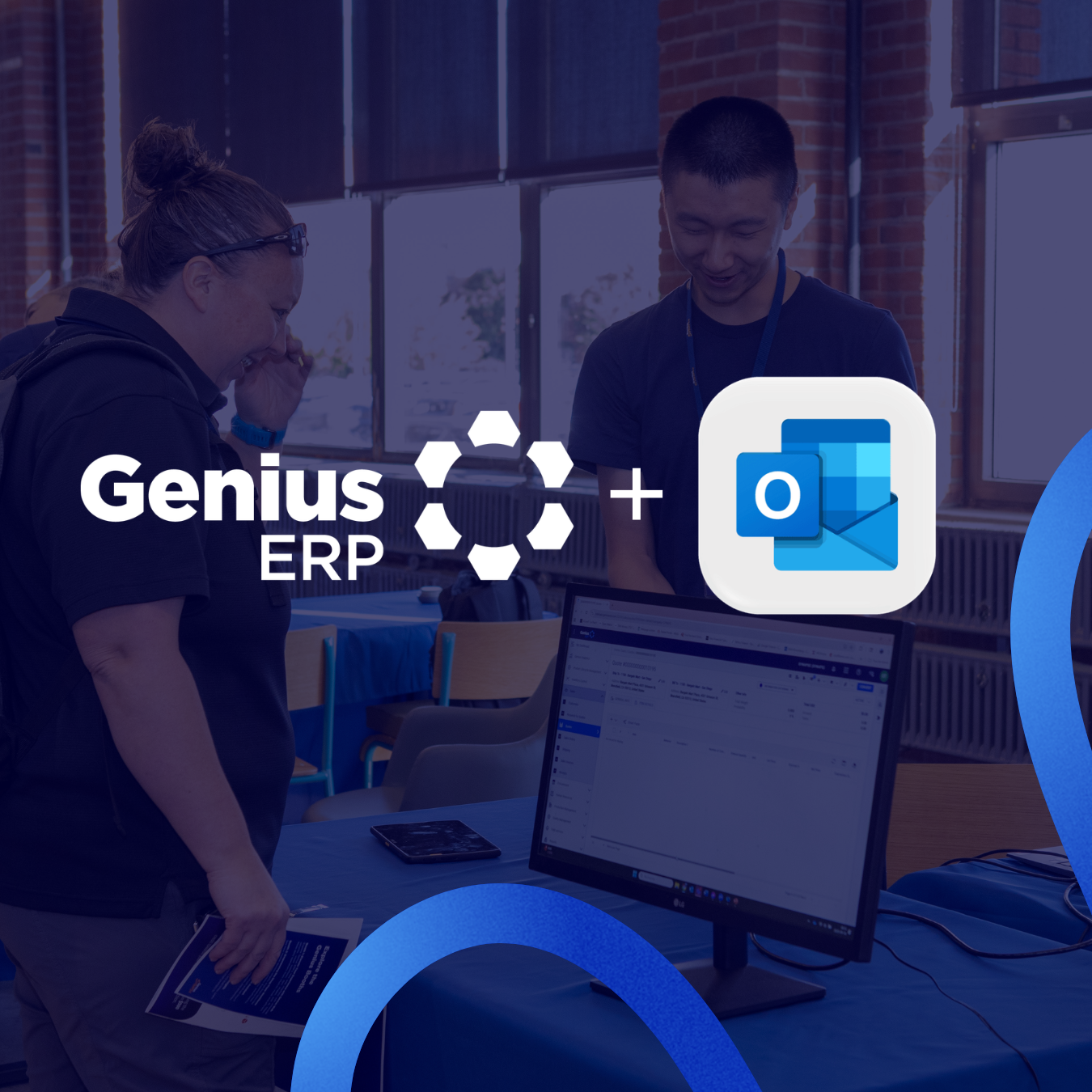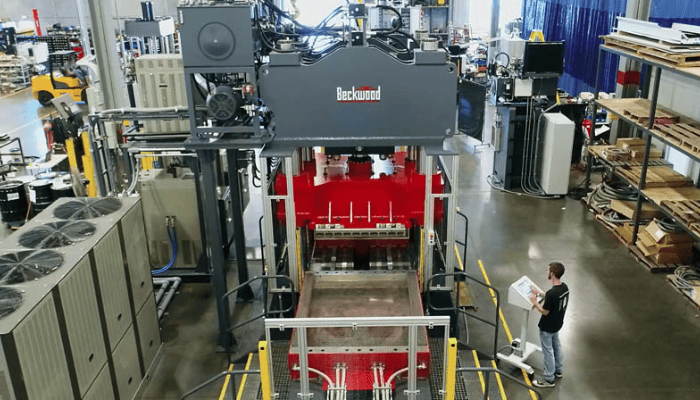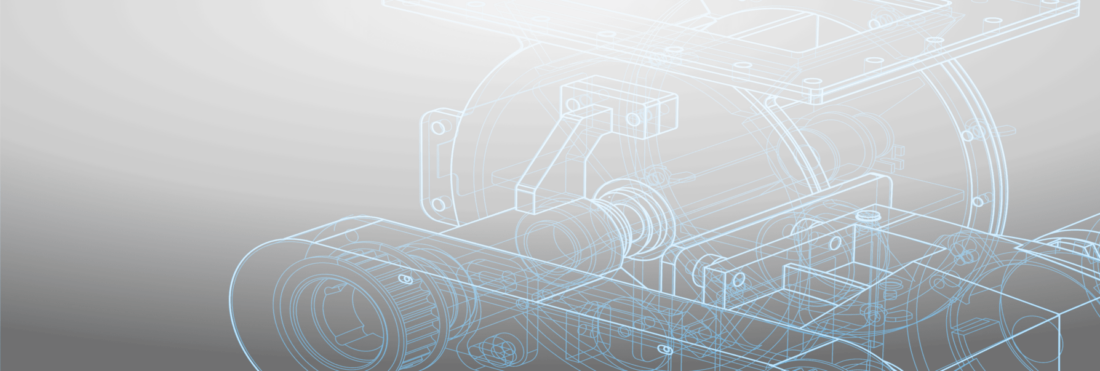We’ll look at seven key features to look for in a manufacturing ERP — including tools that connect engineering, production, and the shop floor; improve scheduling and job costing; manage inventory and data; and ensure your system is implemented and supported by true manufacturing experts.

Choosing the right ERP system can make or break a manufacturing business. The best ERP solutions do more than just manage data — they connect every part of your operation, from engineering to accounting, into one unified system.
When comparing the features of ERP systems, look for tools built for the realities of manufacturing — complex production workflows, changing priorities, and a need for accurate, real-time information. ERP Focus outlines the core ERP features businesses should consider, but manufacturers need systems designed specifically for how they build and operate.
If you’re in the process of evaluating ERP options, start by understanding the key features of ERP for manufacturing — the ones that will have the biggest impact on your efficiency, visibility, and bottom line.

Integration Across Engineering, Production & Shop Floor
One of the most valuable features of an ERP system for manufacturers is full integration between your engineering department, production planning, and the shop floor. When these areas share the same data, you eliminate manual entry, reduce errors, and increase production efficiency.
True integration means everyone works from a single source of truth. Engineers can send updated designs directly to production. Planners can see material availability in real time. Shop floor teams always have the latest drawings and instructions at their fingertips.
This level of visibility and collaboration keeps your entire operation aligned — shortening lead times, improving quality, and ensuring every job runs smoothly from quote to delivery.
CAD-to-BOM Capability
An ERP with CAD-to-BOM integration automatically converts CAD designs into bills of materials (BOMs). This feature saves hours of repetitive data entry, prevents mistakes, and ensures that engineering changes flow seamlessly into production.
When your CAD and ERP systems talk to each other, engineers and production teams stay on the same page. Updates made by engineers are instantly reflected in your BOMs and work orders, ensuring every team is working from the same, most accurate data.
Shop Floor Connectivity
Real-time shop floor connectivity lets everyone see what’s happening — whether it’s job progress, work order status, or access to the latest engineering drawings.
A connected shop floor gives supervisors and operators clear priorities and updates, keeping schedules accurate and customers informed.

Genius ERP Shop Floor
Robust Production Planning & Scheduling
Few things impact your on-time deliveries more than your ability to plan and schedule production effectively. Modern ERP systems for manufacturing need to do more than just create job lists — they must coordinate people, machines, and materials so production flows smoothly and efficiently.
Smart Scheduling That Keeps You on Track
A good manufacturing ERP gives you a complete, real-time view of your production schedule — letting you plan with confidence, manage change easily, and stay on top of delivery dates.
With Smart Scheduling, you can see what’s happening across every job and every work center, understand the impact of any delay, and quickly adjust priorities when needed. Instead of juggling spreadsheets or manually rescheduling tasks, your team always has a clear, up-to-date plan to follow.
Smart Scheduling helps manufacturers:
- Increase on-time delivery rates by identifying and resolving bottlenecks early.
- Make better use of limited resources by balancing workloads across your shop.
- Stay agile by instantly adjusting to material delays, design changes, or urgent orders.
The result is a production schedule that’s realistic, flexible, and keeps your shop running at peak efficiency — so you can deliver on time, every time.

Genius ERP Smart Scheduling
Integrated Finance, Accounting & Job Costing
Financial integration is actually one of the most important features of an ERP system for manufacturers. When your accounting, production, and inventory data all live in one place, you can see the full picture of your business — not just isolated numbers on a spreadsheet.
An integrated ERP ties your financial data directly to operations, giving you accurate, real-time insight into every job, project, and department. You can track costs as they happen, monitor cash flow, and make smarter decisions with confidence that your numbers are right.
Quoting & Estimating
Accurate estimating starts with accurate data. With an ERP system that connects quoting to historical data and real-time costs — including labor rates, materials, and machine time — your quotes reflect what’s actually happening on your shop floor.
Instead of guessing or relying on outdated spreadsheets, you can build detailed quotes that are fast, consistent, and profitable. Every quote becomes a record that ties directly into production, purchasing, and accounting, ensuring a seamless flow from estimate to invoice.
This means you can:
- Respond faster to new opportunities with professional, data-backed quotes.
- Win more jobs by pricing competitively — without cutting into margins.
- Improve accuracy over time by comparing estimated costs to actual job performance.
Job Costing & Accounting
Once the job is underway, your ERP tracks every dollar spent — labor, materials, and overhead — so you can see exactly where you’re making money and where you’re not.
Integrated job costing helps you spot cost overruns early, understand the true profitability of your projects, and strengthen your pricing strategy for future work. Meanwhile, built-in accounting tools handle payables, receivables, general ledger, and financial reporting — keeping your books accurate and up to date.
With a connected accounting system, you’ll always have the financial clarity to make better decisions, reduce manual data entry, and close your books faster.
Inventory Management Built for Manufacturing
Not all inventory systems are created equal. ERP inventory management features designed for manufacturers go beyond basic stock tracking by connecting materials directly to work orders, projects, and purchasing.
Real-Time Inventory Control
An integrated ERP gives you live insight into what’s available, what’s allocated, and what’s on order. That means no more stockouts, double ordering, or waiting for materials that aren’t there.
MRP and Reordering Tools
Manufacturing-specific ERPs also include material requirements planning (MRP) features that calculate what’s needed for each job, automatically generate purchase orders, and optimize inventory levels. This ensures materials flow smoothly through production without tying up cash in excess stock.

Genius ERP Inventory Management
Data, Analytics & Reporting
Modern manufacturing runs on data — but data only matters if it helps you act. The best ERP systems turn complex information into clear, useful insights your whole team can act on every day.
An ERP built for manufacturing gives you real-time visibility into what’s happening across your business — from the shop floor to the top floor — so you can make informed decisions instead of relying on gut instinct.
Operational Dashboards
Customizable dashboards provide you with live data across all departments, including production, inventory, purchasing, and finance. You can instantly see what’s on schedule, what’s late, and what’s costing more than it should.
Dashboards and visual reports help you:
- Track key metrics like machine utilization, labor productivity, and on-time delivery.
- Spot bottlenecks early so you can take corrective action before they become costly delays.
- Monitor financial health with job costing and margin insights that update automatically.
Instead of chasing spreadsheets or waiting for end-of-month reports, you’ll always know how your operation is performing in real time.
Business Intelligence Tools
For manufacturers that want deeper insights, integrated business intelligence (BI) tools — like Power BI — let you analyze trends over time, compare performance across product lines, or drill into specific KPIs.
This gives management and operations teams the data to answer big questions, such as:
- Which jobs or products deliver the highest margins?
- Where are we losing time or resources?
- How can we increase throughput without adding cost?
By combining ERP data with BI tools, you can move from reactive decision-making to proactive, data-driven improvement — using real numbers to plan growth, manage capacity, and increase profitability.
The right ERP analytics tools don’t just report what happened — they help you see why it happened and what to do next.

Genius Analytics
CRM and Sales Management
Manufacturing ERP systems aren’t just for production — they can also manage your front-end processes, including sales and customer relationships.
Integrated CRM
An integrated CRM gives your sales team access to the same data as your production and accounting teams. Quotes can be generated quickly using live material and labor costs, and orders can be tracked seamlessly from first contact to final invoice.
This helps you respond faster to customers, improve order accuracy, and strengthen relationships.
Beyond tracking contacts and opportunities, a CRM integrated with your ERP gives your team visibility into active jobs, delivery schedules, and payment status — helping sales, production, and accounting all stay aligned.
Implementation, Support & Vendor Expertise
Even the best ERP systems won’t make a difference without the right implementation and support. Many ERP projects fail because the vendor doesn’t understand your industry or lacks the expertise to guide a manufacturer through change.
Industry-Leading Implementation Services
Choose an ERP provider with a proven track record of success. At Genius ERP, more than 85% of implementations are delivered on time — an industry-leading rate that reflects both our process and our deep manufacturing expertise.
Our implementation teams work directly with your staff to understand your workflows, train your users, and configure the system around how you actually build. Implementation isn’t just about installing software — it’s about setting your team up for long-term success.
With dedicated project managers, on-site training, and hands-on support, Genius ERP helps you launch smoothly and achieve real results faster. And with continued support after go-live, you’re never left on your own once the system is running.

Genius ERP Implementation
Why These ERP Features Matter for Manufacturers
Manufacturing is complex. You need an ERP system that makes it easier — not one that forces you to work around its limitations. The most important features of ERP for manufacturing connect your teams, automate repetitive tasks, and give you the data to make confident decisions.
An ERP designed for manufacturers brings everything — engineering, production, accounting, inventory, and scheduling — into one system that actually fits the way you work.
Why Manufacturers Deserve an ERP Built for Manufacturing
If you’re a manufacturer, choosing a generic, one-size-fits-all ERP may check the box, but it won’t necessarily move your business forward.

FAQ: Features of ERP Systems for Manufacturers
What are the main features of an ERP system?
Core ERP features include integrated finance and accounting, inventory management, production planning, scheduling, reporting, and CRM tools — all connected in one platform.
What are the most important features of ERP systems for manufacturers?
For manufacturers, look for CAD integration, smart scheduling, job costing, real-time inventory tracking, and analytics that turn data into actionable insights.
How do ERP analytics help manufacturers?
ERP reporting and BI tools give manufacturers visibility into performance — helping track productivity, detect bottlenecks, and improve profitability with data-driven decisions.
How do ERP systems improve production efficiency?
By connecting engineering, scheduling, and shop-floor operations, ERP systems eliminate manual work, improve communication, and keep production running on time.
Why do manufacturers need an ERP system?
An ERP centralizes data, eliminates silos, and helps manufacturers plan, track, and deliver projects on time while improving efficiency and profitability.
If you’re exploring ERP options, focus on systems built for manufacturers — with the right features, expertise, and support to keep your production running smoothly. See how Genius ERP is built for manufacturing.
Get your eBook Scared to implement a new ERP?
"*" indicates required fields



